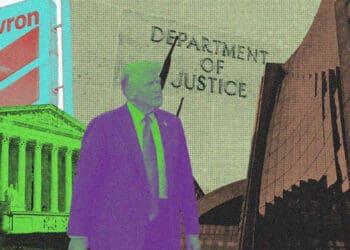It often happens that a person’s career is over when he or she blows the whistle. Charles Middleton posits that if increasing compliance and minimizing fraud is the goal (and it is), then blackballing whistleblowers is counterproductive.
Secrecy is essential to corporate fraud. Destroy the secrecy and you destroy the fraud. So why are honest companies doing the one thing that preserves secrecy – blackballing whistleblowers? I think it’s because there is something more important than honesty: self-interest.
Managers believe it is in their self-interest to keep whistleblowers out of their organizations. They don’t think of blackballing as censoring truth-tellers – they think of it as avoiding troublemakers who can’t be trusted. My mission is to convince honest managers that it is in their interest to change their minds and start hiring whistleblowers.
I plan to analyze the complex issue of whistleblowing and blackballing from various angles over my next few articles. I would appreciate your feedback. If you think I am getting something wrong, please call me on it. Getting to the right answer will take creativity and cooperation.
Time and again we see that whistleblowers are the way corporate fraud is unearthed. There are lots of other tools: corporate compliance teams, internal and external audits, mission statements, etc. These things are important, but they are not how fraud generally comes to light. Whistleblowers are the key. How a company treats whistleblowers is what determines whether whistleblowers arise early enough to stop fraud or whether fraud grows in secrecy until it blows up. Currently, every major company with which I’m familiar blackballs whistleblowers. (Is your company the exception? Have you ever hired a whistleblower on purpose? Or, have you done the opposite? Have you chosen not to hire a whistleblower or passed on information about a candidate that caused the candidate to be dropped?)
The corporate compliance community is tasked with increasing compliance and decreasing fraud. If compliance professionals can change management’s behavior toward whistleblowers, the compliance community will be more effective at achieving this mission.
Supporting whistleblowers has advantages. The biggest is leveling the playing field between honest companies and dishonest ones. Imagine your biggest competitor is a dishonest company that pays bribes. Your company has choices: lose business to the corrupt company, become corrupt too or find a way to make sure the corrupt company can’t cheat. The last choice is best. The easiest way to create honest competition is for honest companies to make it known that they will hire whistleblowers fired by dishonest companies. Eliminate blackballing and you eliminate the pressure honest employees feel to go along with the fraud.
Another great advantage of ending blackballing is it’s cheap. The company doesn’t need to create more compliance jobs; it can hire whistleblowers into open positions across the organization. Being a whistleblower isn’t a job; it’s a part of every job. Once it becomes known that whistleblowing is not punished, whistleblowing will be normalized and expected. Currently, honest employees working for dishonest companies have to choose between their family’s well-being and their sense of honesty. Losing the ability to provide for one’s family is traumatic. Family wins – and rightly so. But that means fraud also wins. Once we empower honest people to be honest at work without jeopardizing their ability to feed their families, the battle against corporate fraud will be mostly won.
Of course, there are disadvantages to ending blackballing. Whistleblowers can be troublemakers. Managers should be free to build teams full of people they choose and trust. Mangers should be empowered to “hire the best person for the job.” The managers’ hiring decisions, however, should be informed and without prejudice. Whistleblowers today are like African Americans or females in Alabama in 1960.
Back then, “minorities” were not hired into management positions by any company. The managers of Alabama businesses in the 1960s thought they were choosing “the best person for the job,” yet the best person for the job was always a white man. Obviously, this system meant a lot of talent was wasted: The 1960s managers were not hiring the best person for the job; they were hiring the best white man for the job.
Now, minorities are hired into all positions by all companies, and the world is better for it. This change resulted from a long civil rights struggle. I don’t equate whistleblowers’ struggles with the civil rights strife in America. Whistleblowers are not being lynched, but they are being denied the ability to work, and that is fundamental to people’s well-being. Legislation is slowly being enacted to protect whistleblowers, just as it was slowly passed to help minorities. But the critical issue isn’t what the law says – it’s hiring manager’s perspectives. Once managers change their opinion about whistleblowers, they will find that sometimes a whistleblower is “the best person for the job.”
Whistleblowers think and act a little differently from others. That diversity can be an asset. At the 2019 National Whistleblower Day in the U.S. Senate last summer, Sherron Watkins, Enron whistleblower and Time’s 2002 Co-Person of the Year, told the audience that she had already raised the issue that finally brought Enron down several times before the issues finally caused the company to implode. Management wasn’t listening. Had management listened earlier, Enron and Andersen might still be around today. Another thing Sherron Watkins said was perhaps more poignant. She said she misses her old career. Whistleblowers are blackballed even when they are international heroes. Sherron did the right thing for the right reasons, and the business world has never forgiven her for it. Change is obviously needed.
If we can win this fight and change the world so that whistleblowers are no longer blackballed, the world will have less fraud. Less fraud will mean more efficient use of society’s resources. Everyone will be richer. There is a direct correlation between honesty in a society and the well-being of its citizens. Ending blackballing will literally make the world a better place.



 Charles Middleton is an international tax lawyer in West Palm Beach, Florida with a practice focused on whistleblower advocacy and startups. Charlie led tax teams at GE, Caterpillar, Walmart and Oxbow (a Koch brother company) for 20 years. At Walmart, Cat Financial and Oxbow, Charlie was responsible for all tax planning globally. Charlie was a regular speaker at national tax conferences until he turned his focus to whistleblowing. Charlie is a Chartered Financial Analyst (CFA) charter holder. He attended Alabama School of Law and received an LLM in tax law from New York University.
Charles Middleton is an international tax lawyer in West Palm Beach, Florida with a practice focused on whistleblower advocacy and startups. Charlie led tax teams at GE, Caterpillar, Walmart and Oxbow (a Koch brother company) for 20 years. At Walmart, Cat Financial and Oxbow, Charlie was responsible for all tax planning globally. Charlie was a regular speaker at national tax conferences until he turned his focus to whistleblowing. Charlie is a Chartered Financial Analyst (CFA) charter holder. He attended Alabama School of Law and received an LLM in tax law from New York University.










